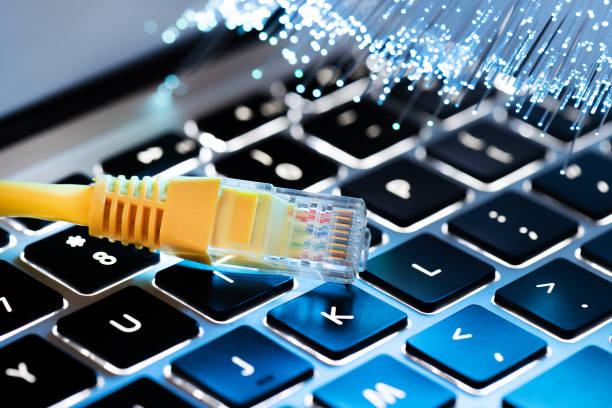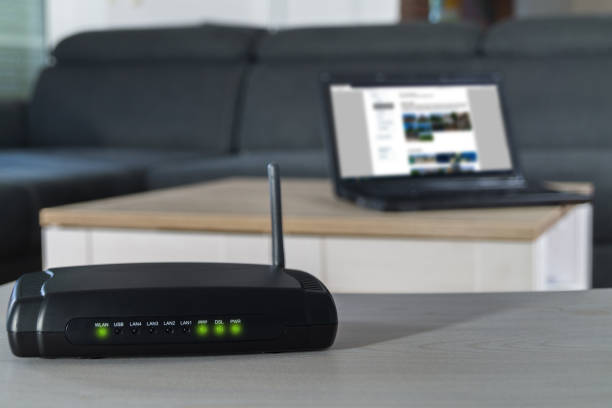Introduction
In today’s interconnected world, having a reliable and high-speed internet connection is essential for both personal and professional activities. So, when it comes to choosing an internet service provider, the decision often comes down to two primary options: cable and fiber optics. Both are reliable connections but have also their advantages and drawbacks, making it crucial for consumers to understand their differences. Well, in this guide, we will compare Cable vs. Fiber in detail so you can easily decide which connection is the best option for you.
Understanding Cable vs. Fiber
What is Cable Internet?
Cable internet utilizes the same coaxial cables that deliver television signals to transmit data. It’s a widely available and established technology in many regions around the world. Moreover, it is widely available in urban and suburban areas where cable television infrastructure is established.
Speed and Performance
Cable internet offers decent speeds, typically ranging from 25 Mbps to 500 Mbps, depending on the plan and provider. However, the actual speed experienced by users may vary based on factors like network congestion and the number of users sharing the connection in the area.
Reliability and Stability
While cable internet is generally reliable, its stability can be affected by external factors such as inclement weather and network congestion during peak usage times. Additionally, since cable internet is a shared connection, the bandwidth available to users may decrease during times of high demand.
Exploring Fiber Optic Internet
What is Fiber Optic Internet?
Fiber optic internet, on the other hand, uses thin strands of glass to transmit data using light signals. It is known for its exceptional speed, reliability, and bandwidth capacity, making it an attractive option for users who require fast and stable internet connections.
Speed and Performance
Fiber optic internet offers unparalleled speed and performance, with speeds often reaching up to 1 Gbps or more. This high-speed connection is ideal for bandwidth-intensive activities such as streaming high-definition videos, online gaming, and video conferencing.
Reliability and Stability
One of the key advantages of fiber optic internet is its reliability and stability. Unlike cable internet, fiber optic connections are less susceptible to interference from external factors like electromagnetic interference and inclement weather. As a result, users can expect consistent performance and minimal downtime.

Comparison
Speed and Bandwidth
In terms of speed and bandwidth capacity, fiber optic internet outperforms cable internet by a significant margin. Fiber optic connections can support much higher speeds and accommodate more devices simultaneously without experiencing a slowdown in performance.
Reliability
Fiber optic internet is generally more reliable than cable internet due to its resistance to external interference and the dedicated nature of fiber optic connections. Users can enjoy consistent performance and uptime with fiber optic internet, even during peak usage hours.
Availability and Installation
While cable internet is more widely available than fiber optic internet, the availability of fiber optic infrastructure is expanding rapidly in many regions. However, installing fiber optic cables can be more complex and expensive compared to cable infrastructure, which may limit its availability in certain areas.
| Call 866-861-4084 for Internet Deals |
Other Types of the Internet and How They Compare
When you are considering internet options, cable and fiber optic connections aren’t the only ones available. Several other types of internet connections exist, each with its own set of characteristics and advantages. Let’s explore some of these alternative options and how they compare to cable and fiber optic internet:
Satellite Internet
Satellite internet relies on satellites orbiting the Earth to transmit data to and from users’ dishes. Here’s what you need to know about satellite internet:
Coverage: Satellite internet provides coverage in remote or rural areas where other types of internet may not be available.
Speed and Performance: While satellite internet speeds have improved over the years, they tend to be slower compared to cable and fiber optic connections. Additionally, satellite internet may be subject to data caps and latency issues due to the distance data must travel to and from satellites.
Reliability and Stability: Satellite internet can be affected by weather conditions such as heavy rain or snow, which may interfere with the signal. Latency can also be an issue, particularly for real-time applications like online gaming or video conferencing.
Fixed Wireless Internet
Fixed wireless internet uses radio waves to connect a fixed location, such as a home or business, to the internet. Here is a closer look at fixed wireless internet:
Availability: Fixed wireless internet is often used in areas where traditional wired connections are not feasible, such as rural regions or areas with challenging terrain.
Speed and Performance: Fixed wireless internet speeds can vary based on factors like distance from the provider’s tower and line of sight obstacles. Speeds typically range from 1 Mbps to 100 Mbps, making it suitable for basic internet activities but potentially limiting for high-bandwidth applications.
Reliability and Stability: Fixed wireless internet can provide reliable connectivity in many areas, but it may be susceptible to interference from environmental factors like foliage or buildings.
DSL (Digital Subscriber Line)
DSL, or Digital Subscriber Line, is a type of internet connection that utilizes existing telephone lines to transmit data. Here are some key points to consider:
Availability: DSL is widely available in urban and suburban areas where telephone lines are prevalent.
Speed and Performance: DSL speeds can vary depending on factors such as distance from the provider’s central office and the quality of the copper lines. Users closer to the central office generally experience faster speeds, while those farther away may have slower connections.
Reliability and Stability: DSL is generally reliable, but its stability can be affected by factors like line quality and interference. It may experience slowdowns during peak usage times or inclement weather conditions.

Comparison to Cable and Fiber Optic
When comparing DSL, satellite, and fixed wireless internet to cable and fiber optic connections, several factors come into play:
Speed and Bandwidth: Cable and fiber optic internet generally offer higher speeds and greater bandwidth compared to DSL, satellite, and fixed wireless connections, making them better suited for high-demand applications like streaming HD video or online gaming.
Reliability: Cable and fiber optic internet tend to be more reliable and stable compared to DSL, satellite, and fixed wireless options, especially during peak usage times and adverse weather conditions.
Availability and Installation: Cable internet is widely available in urban and suburban areas, followed by DSL. Fiber optic internet availability is growing but may not be accessible in all areas. Satellite and fixed wireless internet can provide coverage in rural and remote regions where other options may not be available, but installation may require specialized equipment and setup.
Conclusion
In conclusion, the choice between cable and fiber optic internet ultimately depends on your specific needs and priorities. If you prioritize speed, reliability, and future-proofing your internet connection, fiber optic internet emerges as the superior option. However, if availability and affordability are your primary concerns, cable internet may be a practical choice.
FAQs
Is fiber optic internet more expensive than cable internet?
Initially, fiber optic internet may have higher installation costs, but long-term savings may be realized due to its efficiency and reliability.
Can I upgrade from cable to fiber optic internet?
In many cases, yes. Check with your internet service provider for availability and upgrade options in your area.
Does fiber optic internet require special equipment?
Yes, fiber optic internet typically requires specific modems and routers designed to work with fiber optic connections.
Is cable internet sufficient for basic internet usage?
Yes, cable internet is suitable for basic browsing, email, and streaming. However, for high-demand activities like gaming or streaming in 4K resolution, fiber optic may offer a better experience.
How can I find out if fiber optic internet is available in my area?
Contact local internet service providers or use online tools to check for fiber optic availability in your location.
In the end, both cable and fiber optic internet have their advantages and disadvantages. Consider your priorities and budget when making the decision, ensuring you choose the option that best suits your needs.

Meet Jennifer Harper, a wordsmith extraordinaire who has been shaping the digital landscape with her creative prowess for the past two years. Not just a content writer; she is a storyteller who brings the content to life. Her passion for internet trends, memes, and the ever-evolving world of entertainment is evident in every piece she creates. Jennifer doesn’t just follow trends; she sets them.